Every culture has it’s own unique set of seemingly bizarre traits. If you teach English in South Korea, your experience will be no different, Korea has a long list of quirky things you’ll come to realize once you’re in country. The price of fruit is exorbitant and considered an acceptable gift, tattoos are apparently terrifying, couples wear matching clothes and a visit to the doctor is an experience like no other, to name a few! You’ll learn to live with them, and probably grow to love them, but here’s a heads up of the strangest ones so you can mentally prepare yourself before you go.
1. BANGS GALORE: Jimjilbangs. PC Bangs and Noraebangs
“Bang” is the word for room in Korea.
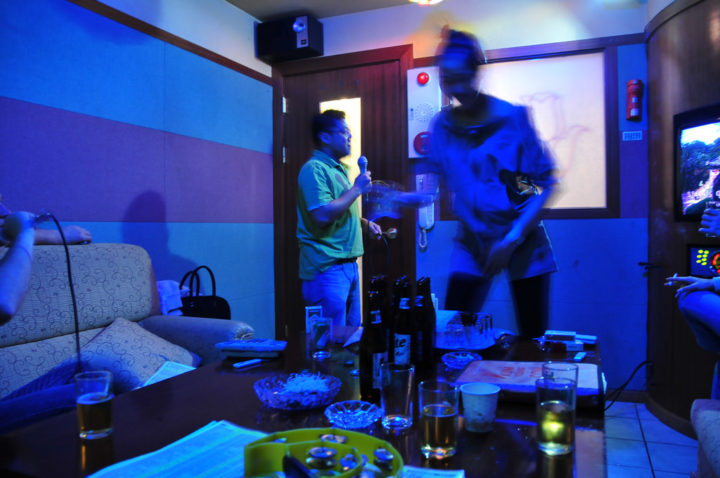
[image source] A Noraebang is a singing room in Korea but don’t you dare call it Karaoke, that would be the Japanese version and this is NOT Japan.
Noraebang – pronounced “Noh-ree-bung” (singing room): Opulent rooms where you can order drinks and snacks and sing your heart out to a long list of classic singalongs (mostly from the 80’s). They’re open till the wee hours of the morning, so you can sing all night till your voice goes.
PC Bang: Korea is high on the list of top performers in gaming world championships. People are borderline obsessed with gaming and a PC bang is where people can dedicate time to their passion, and play games in a massive room full of computers in a country with the world’s fastest internet, and even order food while you do it.
2. Chimaek: Chicken and Beer
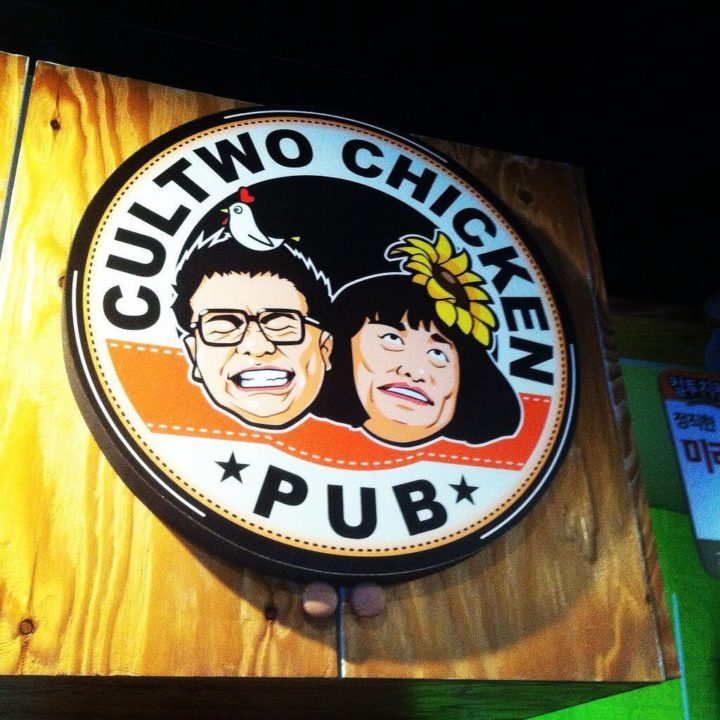
Chicken and beer is the ultimate combo in South Korea, get it spicy or mild, either way the brew will make an excellent accompaniment
With a wide range of uniquely Korean traditional dishes, it may surprise you to know that fried chicken is a massive part of the Korean menu. The Korean twist on fried chicken, is that it’s always served with beer. Chimaek is a word that combines “chicken” and “maekju” (the word for beer). There are loads of chimaek restaurants dedicated to this fine delicacy, and they are always on the move making deliveries to hungry people in parks or at a baseball game.
3. A boozy affair
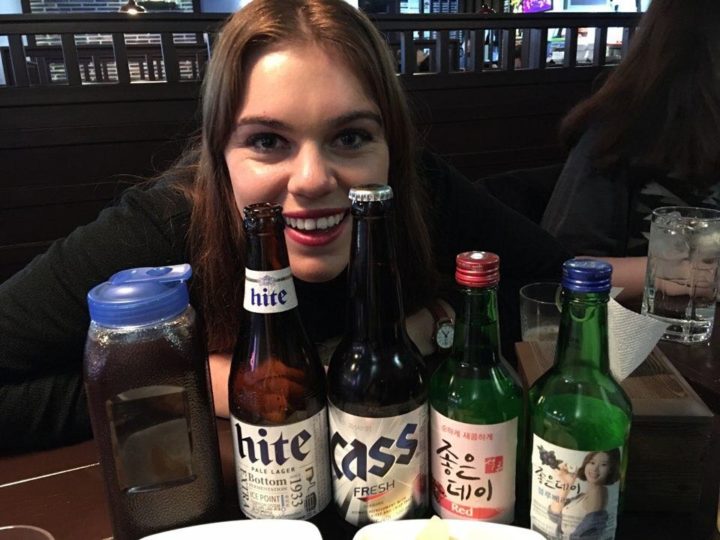
Soju is a staple at any Korean barbecue but it’s available from almost any local convenience store.
Let me not beat around the bush, Koreans love to drink. I thought it would be a sabbatical from drinking after my university days, but boy was I wrong! Soju, makgeolli and beer are at the heart of social (and sometimes business) engagements.
Drinking in public is legal and done regularly and with vigour. You can purchase alcohol at the convenience stores (which are situated about every 500m) for about $1-2 a pop. Drinking in a park or outside the convenience store is the recommended way to start a night out. NOTE: Western alcohol is extremely pricey, so stick to the local poison.
4. Plastic Surgery
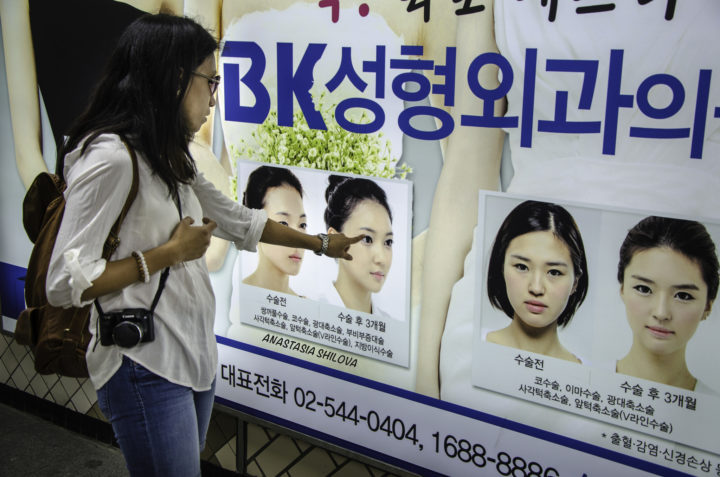
[image source] It’s commonplace, especially in Seoul, to see adverts for plastic surgery in the metro and on the street.
But when I got there, I realized that plastic surgery is a very normal part of life in Korea. Almost everyone has had a little something done, and it’s considered a good thing to do everything you can to improve your appearance in a country that values looks almost above all else except, except maybe for intelligence.
5. Coffee
Pronounced “coppie” by Koreans, it’s not quite what we’re used to. Hot coffee is often drunk with a straw. It’s widely available, both cold and hot, but generally very weak and pretty expensive ($5-$8).
6. K-pop and K-dramas
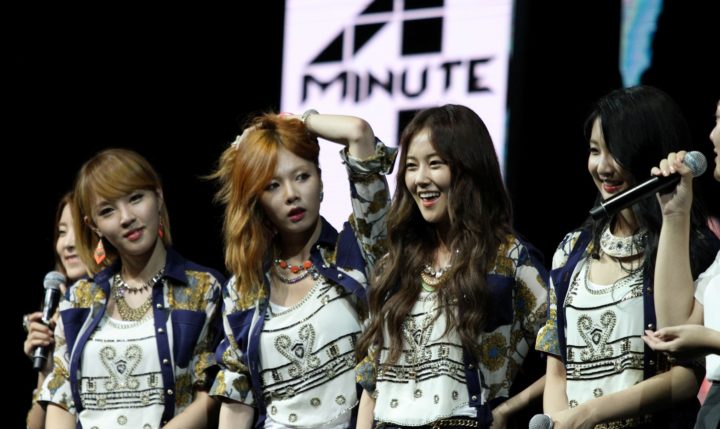
[image source] K-pop is pretty much all you’ll hear in Korea. It represents a stark contrast against traditional Korean culture.
7. R-E-S-P-E-C-T
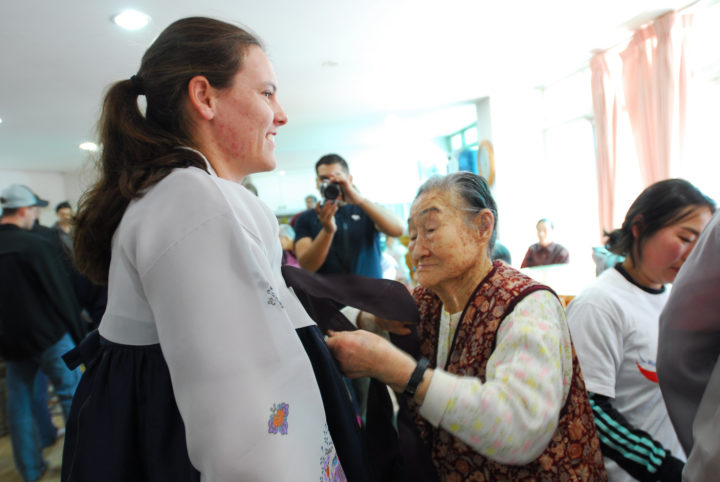
[image source] Korea practices a culture showing huge respect to elders. Understanding it and playing along will make your experience much smoother.
At teachers dinners and in the cafeteria during lunch, you’ll see the seating arrangements, food lines and order of leaving the table, all reflect this respect. Pointing with fingers is considered very disrespectful, so be mindful of that in your classroom and surrounds. Bowing is the greeting custom. Do not – I repeat – do not offer hugs to your co-teacher when you first meet them (like I did, awkwardly). Passing or receiving money or anything else must be done with 2 hands, or with one hand placed on the middle of the inner forearm, whilst the other hand passes.
8. Birthdays are confusing
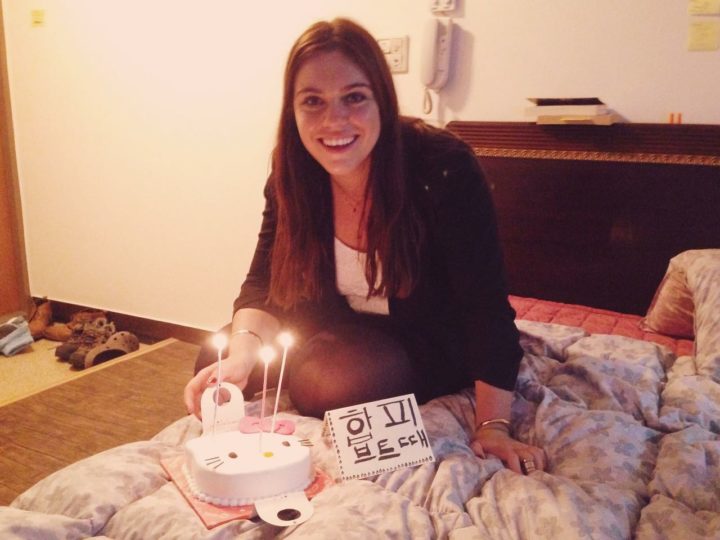
Korean New Year or Seollal is the point at which the nation collectively gets a year older, regardless of when in the year you were born. I made sure to find a happy medium celebrating my actual birthday, but with a Hello Kitty cake.
Not only is the food and language different, but the ageing system as well. Birthdays ain’t no thang in Korea. Everyone celebrates the start of a new year (and turn a year older) at the Korean New Year at the end of January. Add to this that in Korea you are considered to be born 1 year old, where we are 0 years of age at birth.
For this reason, Korean ages are usually a year or two more than what we would consider them to be. Born in the magical year of ‘94, I was only 21 at the time, which for them that meant 19 or 20 in actuality, this caused quite a stir in the staffroom.
9. Super duper superstitious
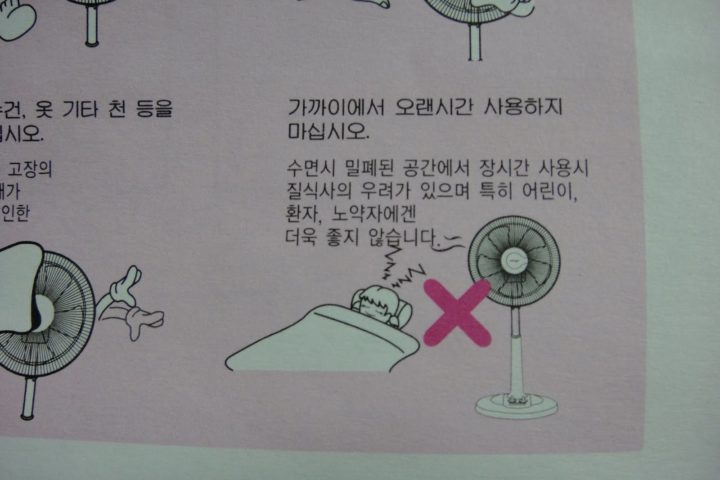
[image source] Falling asleep while a fan is on in your bedroom will cause certain death, apparently.
Writing someone’s name in red bringing bad luck and “fan death” – the belief that falling asleep with a fan on in the room will kill you – are also widespread beliefs of the Koreans. One of my favourite lessons with my kids was comparing superstitions between Korea and the West.
10. Couple Culture
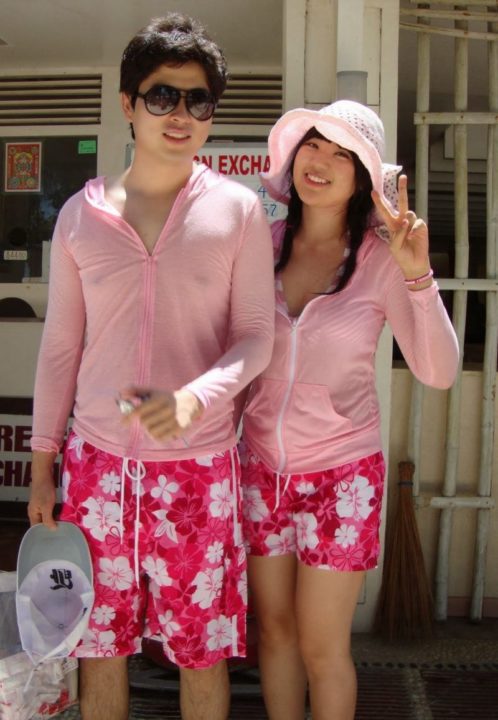
[image source] Korean couples famously love to buy matching outfits which they will wear together as they stroll through the city hand-in-hand.
Are there any you’d add? I’d love to hear about them in comments below!


0 Comments